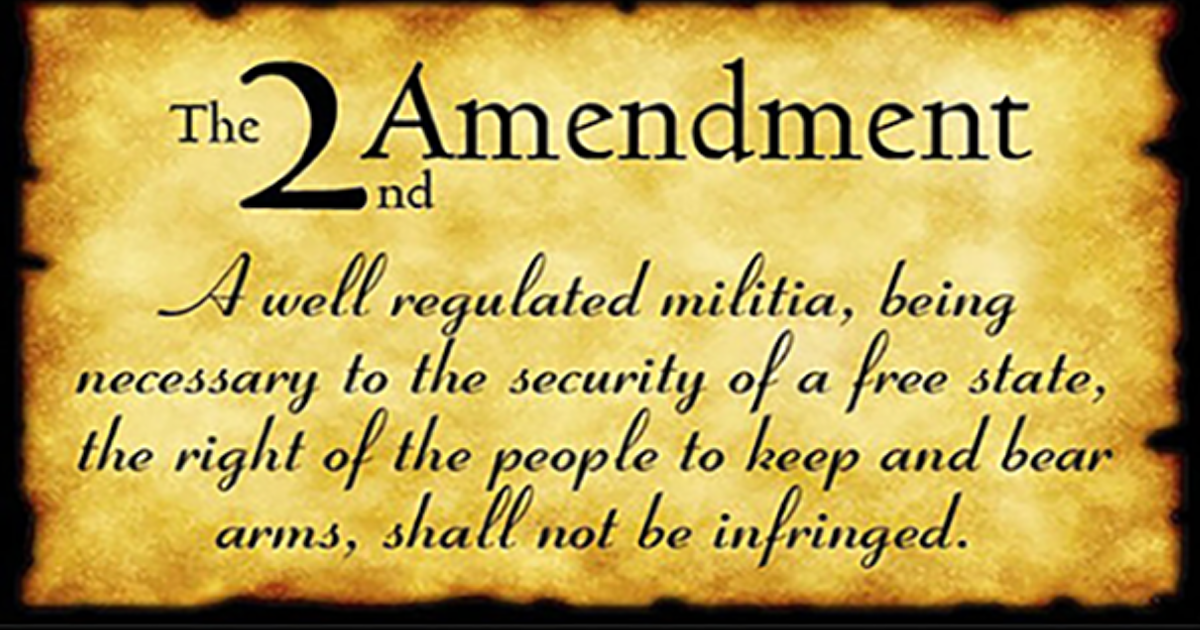|
By Jacob G. Hornberger
Whenever there is a gun massacre, statists inevitably respond that it’s time to repeal the Second Amendment. The idea is that if the Second Amendment is gone, so will be the right to own guns in the United States. There is just one big problem with that position: It’s wrong. The Second Amendment, like the First Amendment, doesn’t give anyone any rights. Instead, it prohibits the federal government from infringing on rights that are natural and God-given and that preexist government. The Declaration of Independence sets forth the essential principles. Every person (i.e., not just American citizens) is endowed by nature or God with fundamental rights. These include life, liberty, and the pursuit of happiness. Thus, given that people’s rights are natural and God-given, they preexist government. The rights come first and the government comes second. What is the purpose of government? The Declaration answers the question: The purpose of government is to protect the existence and exercise of people’s natural, God-given rights. That was the reason for calling the federal government into existence with the U.S. Constitution—to protect people’s natural, God-given rights that preexisted the federal government. A big potential problem arises: The possibility, even likelihood, that the government itself will end up infringing or even destroying people’s rights. That possibility deeply concerned our American ancestors. They were convinced that government itself, not some foreign entity, constituted the biggest threat to their freedom, privacy, property, and pursuit of happiness. That’s why they were not terribly enthusiastic about approving the Constitution. If they hadn’t approved it, the United States would have continued operating under the Articles of Confederation, under which the national government didn’t even have the power to tax people. The American people finally decided to go along with the deal. The biggest argument that finally sold it to them was that the U.S. Constitution, which called the federal government into existence, strictly limited the powers of the federal government to those few powers that were enumerated in the document. Those enumerated powers did not include the power to infringe or destroy people’s natural, God-given rights — rights, again, that preexisted the federal government. Thus, even without the Bill of Rights, the federal government had no legitimate authority to control what people read or what people owned, including books and guns. That’s because these rights preexisted the government and because the Constitution did not give the federal government the power to infringe on these preexisting rights. In fact, if the government did infringe on people’s natural, God-given rights, it would be violating the very reason that people call governments into existence — to protect the existence and the exercise of their rights. So why then was the Bill of Rights necessary? In a technical sense, it wasn’t. Since the powers delegated to the federal government were enumerated in the Constitution and since the delegated powers did not include the powers to control what people read or owned (including books and guns), the Bill of Rights was essentially superfluous. In fact, some people even argued that by enumerating some rights in the Bill of Rights, that might be construed to mean that those were the only rights that were being protected. That’s why the Ninth Amendment was enacted — to point out that that was not the intention. The reason the Bill of Rights was enacted was because of the deep concern that our American ancestors had about the threat that the new federal government would pose to their rights and liberties. They believed that this government — their government — would inevitably end up doing what every other government in history has done — destroy there rights. That’s why they enacted the Bill of Rights — to hammer the message home that the American people were expressly prohibiting the federal government from traveling the road to tyranny that all other governments in history had travelled. But notice something important about the Bill of Rights: It gives no one any rights. Instead, it prohibits the federal government from infringing or destroying rights that already exist. it really should have been called a Bill of Prohibitions rather than a Bill of Rights. Thus, people don’t have the right to own guns because of the Second Amendment, just as people don’t have the right of free speech because of the First Amendment. People’s natural, God-given rights preexist government. They exist whether the Bill of Rights, the Constitution, and the federal government are there or not. What happens when a government infringes or destroys the rights of the people? The Declaration of Independence gives us the answer: It is the right of the people to alter or even abolish the government and institute new government whose powers are limited to its legitimate function. That’s a right that every American living today should keep in mind.
This article was originally published at The Future of Freedom Foundation.
Comments are closed.
|
Archives
July 2024
|


 RSS Feed
RSS Feed



